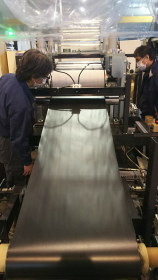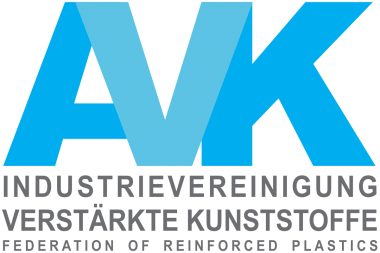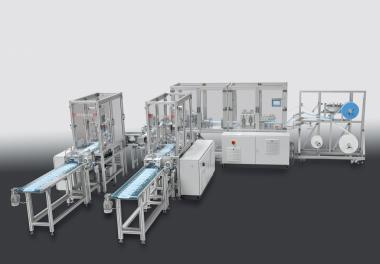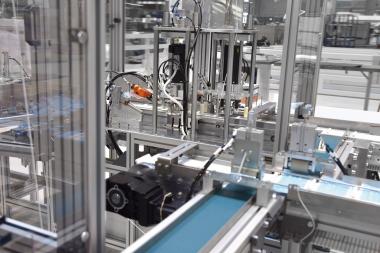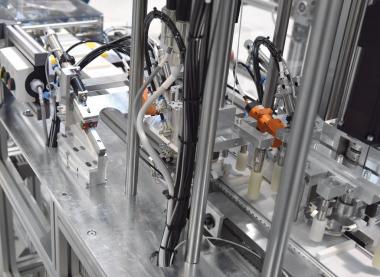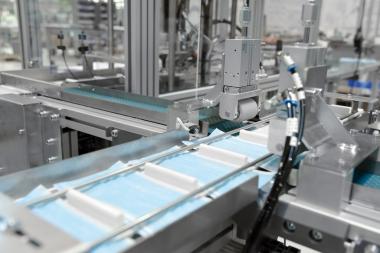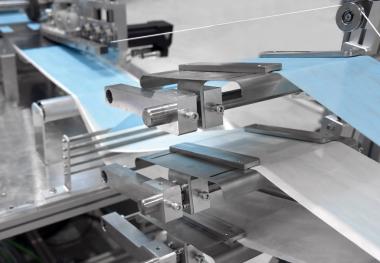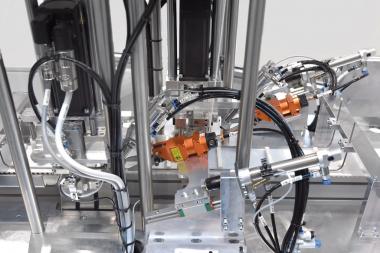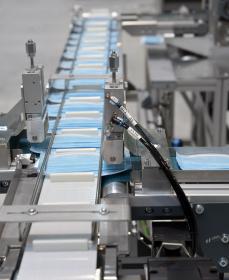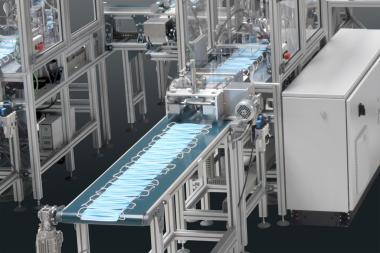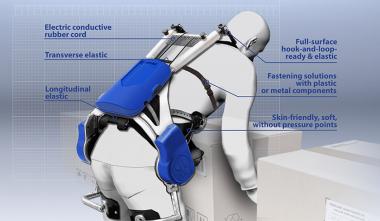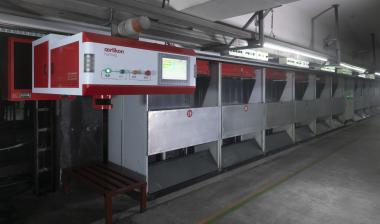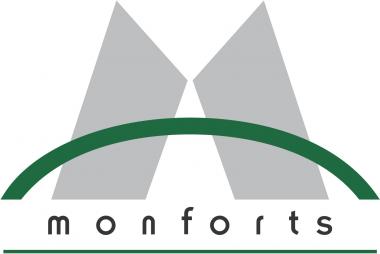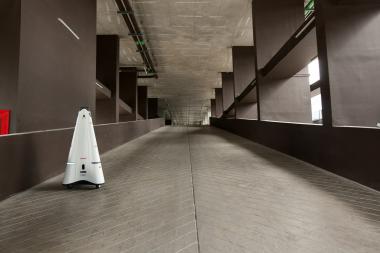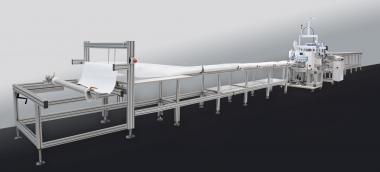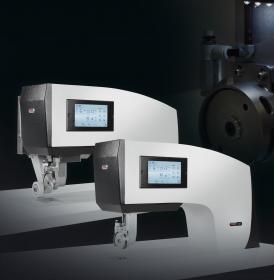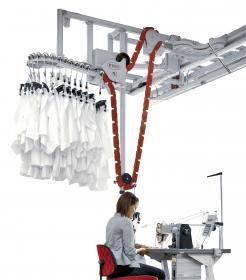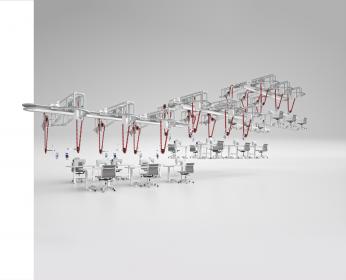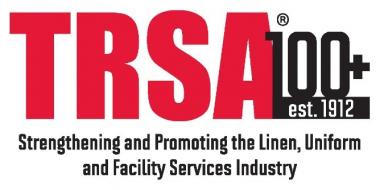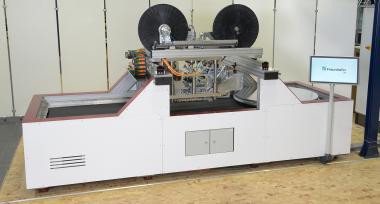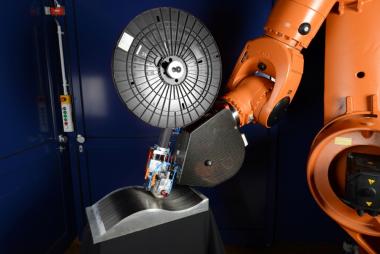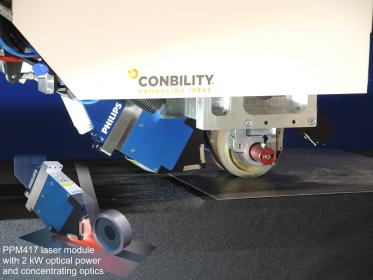How to do more with less explored at Kingpins24 Flash
- Major Monforts denim customers continue to pioneer new initiatives that are pushing the boundaries of sustainable production.
Recycling their cotton waste has become one way these companies can do more with less, and at the recent Kingpins24 Flash online event, Sedef Uncu Aki, director of Orta, headquartered in Istanbul, Turkey, announced a new partnership with leading recycling operation Gama Recycle.
Traceable
“Through this local partnership we will supply the waste from our spinning mills and return around 3,000 tons of premium quality cotton back to them,” she said. “We have established a truly controlled and traceable system and partnering with a domestic recycling centre is important because a lot the carbon emissions associated with recycling usually come from transportation.”
Orta’s ZeroMax range meanwhile uses no cotton at all, being based on Lenzing’s Tencel cellulosic fibre, while the company’s involvement in denim production for a recent launch by Levi Strauss, of jeans made with organic cotton and Circulose – a breakthrough material developed by re:newcell of Sweden and partners – was hailed as a further step forward.
To make Circulose, re:newcell repurposes discarded cotton textiles, such as worn-out denim jeans, through a process akin to recycling paper. The incoming waste fabrics are broken down using water. The colour is then stripped from these materials using an eco-friendly bleach and after any synthetic fibres are removed from the mix, the slurry-like mixture is dried and the excess water is extracted, leaving behind a sheet of Circulose. This sheet is then made into viscose fibre which is combined with cotton and woven into new fabrics.
Circular Park
Omer Ahmed, CEO of Artistic Milliners also announced plans for his company’s new 70,000 square-foot Circular Park in Karachi, Pakistan, at Kingpins24 Flash.
Once complete, this will add three million square metres of additional denim capacity a month to the company’s production and take its total recycled output to a monthly five million metres.
Ahmed observed that there is currently a lack of sustainable fibres that are readily available to use for denim production at scale.
“Organic cotton is too expensive, and in my opinion always will be,” he said. “Cottonised hemp is also not cheap and it’s hard to mix with cotton, while the new regenerated cellulose fibres that are now emerging are promising, but currently in short supply. Recycled polyester is meanwhile still based on petroleum resources which we want to move away from. As a consequence, there are only a few other options for us as a manufacturer and this new project will help us minimise our own waste while significantly lowering our carbon footprint.”
Other Monforts denim customers to introduce cotton fibre recycling operations at their plants recently include AGI Denim, Bossa and Soorty.
Vertical savings
Refresh is the name of the latest collection from AGI Denim – reflecting the company’s significant reduction in water consumption.
The company has just opened new fibre spinning and denim mills at its complex in Karachi, Pakistan.
“Over the years we’ve gone through a series of backward integration steps to become fully vertical,” said AGI Denim executive director Ahmed Javed, at Kingpins24 Flash. “In our latest expansion, we revisited every step of the production processes in order to make resource savings.”
Innovations have included the installation of proprietary robotics for garment finishing, but the most attention has been paid to water savings.
“Pakistan is one of the largest cotton-producing companies in the world and we’re fortunate that the type of cotton that is grown here is well suited to denim production and also helps us lower our carbon footprint, with everything done in close proximity,” Javed said. “In the lifecycle of a pair of denim jeans, however, cotton fibre production contributes 68% of water consumption. While we cannot control how much water cotton needs for it to grow, we can rethink the way we use it in our factory.”
Refresh-branded denims are washed from 100% recycled water as a result of the company’s new wastewater treatment plant, which puts production wastewater through a series of steps beginning with equalisation, followed by aeration and concluding with sedimentation. The water travels through filtration and ultrafiltration systems before being subjected to an activated carbon system and finally a reverse osmosis system to reduce any dissolved salts.
AGI now recycles 4.4 million gallons of water each month – enough to wash a million pairs of jeans.
Sustainable
Monforts has a leading position in the field of denim finishing with its well proven Thermex continuous dyeing systems, Montex stenter dryers and other lines for resource-efficient and economical processing.
“Our denim partners are constantly setting themselves new goals in respect of sustainable production – and more importantly, achieving them,” says Hans Wroblowski, Monforts Head of Denim. “We work closely with them with the aim of constantly optimising processing parameters and achieving further savings in energy, water and raw materials throughout the dyeing and finishing stages of production.”
The latest Monforts innovation for denim is the CYD yarn dyeing system. This technology is based on the effective and established dyeing process for denim fabrics that is now being applied for yarn dyeing. The CYD system integrates new functions and processes into the weaving preparation processes to increase quality, flexibility, economic viability and productivity. A full CYD line is now available for trials at the company’s Advanced Technology Centre in Mönchengladbach, Germany.”
A. Monforts Textilmaschinen GmbH & Co. KG Jeansherstellung Sustainability Tencel Kingpins24 Lenzing Denim dyeing
AWOL Media










